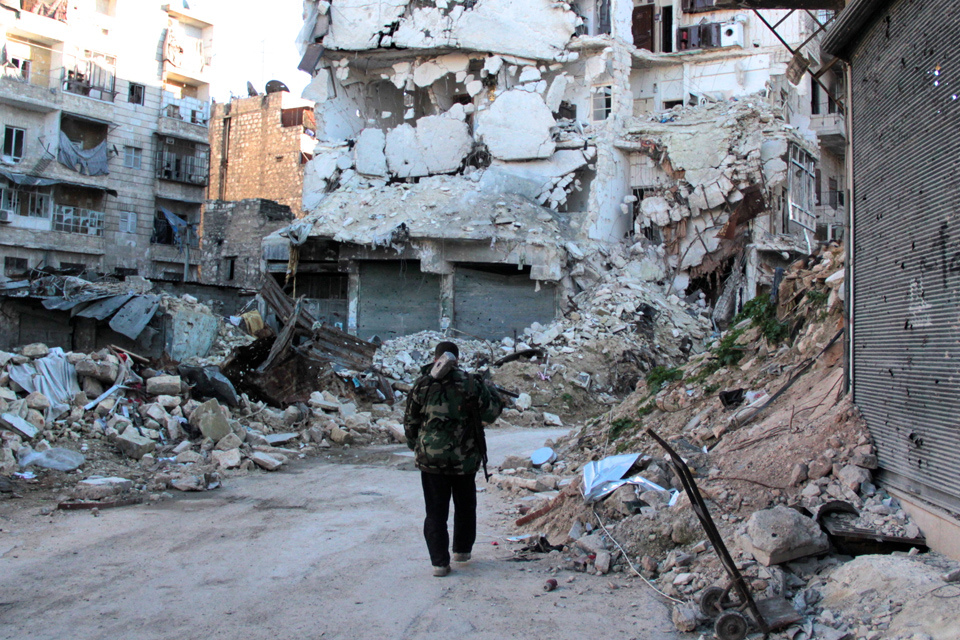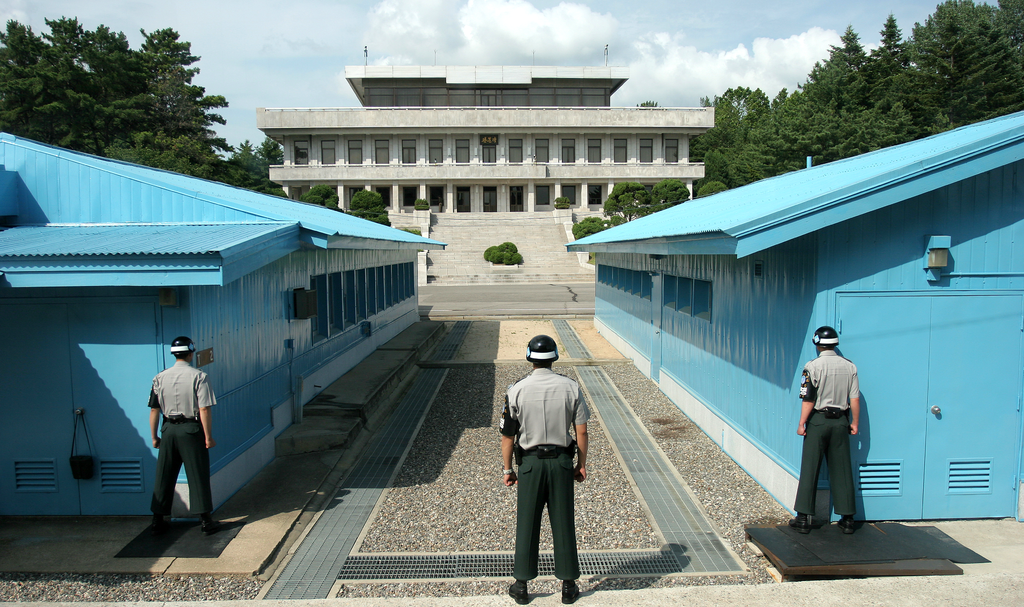The Red Line’s a Lie
The U.S., since the beginning of violence in Syria, backed the idea of regime change in Damascus. Counterbalanced by Russia, there was little that the White House could do diplomatically to rally the international community in taking decisive action. In 2012, President Barack Obama issued a stern statement against the use of chemical weapons in Syria:
“We have been very clear to the Assad regime, but also to other players on the ground, that a red line for us is we start seeing a whole bunch of chemical weapons moving around or being utilized. That would change my calculus. That would change my equation.”
On August 21, 2013, that calculus did, in fact, change in the Damascus suburb of Ghouta. A U.S. government assessment revealed that the Syrian government carried out a chemical attack, killing 1,429 people, including 426 children. The red line was crossed and Israel helped Obama to avoid having to follow through on his statement, and through Russian mediation the Syrian regime, supposedly, disposed of its chemical weapons to circumvent international escalation.
The notion of chemical weapons were soon to be overshadowed and nearly forgotten, partly because ad-Dawlah al-Islamiyyah fi Iraaq wa ash-Shaam (ISIS) became a major actor in the conflict and expanded almost uninterrupted across Syria and Iraq, to the detriment of other rebel forces.
Although, the notion that chemical weapons were removed from the arsenal of the Syrian government, was paraded as a success, it has recently come to knowledge that the Bashar al-Assad regime, once again, has used chemical weapons. Chlorine barrel bombs were dropped from Syrian military helicopters on civilians in over two dozen attacks. This time the excuse is that chlorine is an integral part of societal infrastructure and its removal is not possible, but it also seems that the removal of al-Assad has become unimportant. The red line is no more.
Frenemies
Enter Iran.
The Iranians have been the prime enablers of al-Assad’s rule, providing diplomatic, physical and financial support in order to keep the regime afloat against opposition forces. The U.S.’ policy towards Syria is now variable, dependent on Iran, as the White House tries to reach an agreement with Iran on the issue of Iran’s nuclear programme. Ali Khedery, the longest serving American official in Iraq, considers that president Obama and his team are “unwilling” to do anything that would result in Iran’s backing away from the negotiation table, allowing Iran to have its way in Syria.
 A startling indicator of this new position is the reported exodus of anti-Assad Syrian fighters from the U.S.’ “train and equip” programme, intended to create a fighting force against ad-Dawlah al-Islamiyyah (the Islamic State). Of 200 soldiers vetted to receive training from a total of 6,000 applicants, around 50 remained after most refused to sign contracts guaranteeing that they would not use the training and support provided to continue fighting against the al-Assad government.
A startling indicator of this new position is the reported exodus of anti-Assad Syrian fighters from the U.S.’ “train and equip” programme, intended to create a fighting force against ad-Dawlah al-Islamiyyah (the Islamic State). Of 200 soldiers vetted to receive training from a total of 6,000 applicants, around 50 remained after most refused to sign contracts guaranteeing that they would not use the training and support provided to continue fighting against the al-Assad government.
It is becoming evident that the rhetoric with respect to Bashar al-Assad has shifted. Overturning the regime is no longer the priority, with regime continuity being the new preference. Why? Because the loss of the al-Assad regime is unacceptable to Iran, and upsetting Iran is something the White House does not want to do in hopes that the Iranians will successfully negotiate a compromise on their nuclear programme. The U.S. should be careful about how much of a free hand it is willing to give to Iran in the region. Coalition airstrikes in Iraq are coordinated now with the same militia members against whom U.S. forces fought on the ground in Iraq.
President Obama’s fear of antagonizing Iran can lead to long-term geostrategic fallout in the region, with an emboldened Iran strong-arming affairs related to Syria, Iraq and other Middle Eastern countries. America is willingly or unwillingly establishing the Middle East as an Iranian sphere of influence. Tony Badran, a research fellow at the Foundation for Defence of Democracies, noted that Obama sent communication to Tehran “reassuring” it that al-Assad would “not be touched”. This is not only unfavourable for U.S.’ regional allies, but also raises worries about the American commitment to regional security. The question becomes, “Regional security on whose terms?”
Hot sands, cold shoulders
The U.S.’ reluctance to support Syrian rebels against the al-Assad regime has been duly noted by its major ally, Saudi Arabia. The U.S. and Iran have become “tacit allies” in Iraq – pushing back the Islamic State. The Obama administration’s preoccupation with the potential nuclear deal forced the Saudis to become more assertive in the region according to Dennis Ross, a former Middle East adviser to President Barack Obama.
While Iran has bankrolled Syria with billions and helped deploy thousands of Shi’a fighters from Lebanon, Iraq and Afghanistan there, America is doing little to help the Syrian rebels overcome the regime in Damascus. A nuclear deal would make available more resources for Iran to further help Bashar al-Assad to survive, and would have considerable ramifications for U.S.-Saudi relations, which are already sour over Syria.
Although a deal may potentially rein in Iran’s nuclear proliferation, it will surely distance Saudi Arabia and other regional allies from policy alignment with America. In the sphere of international relations and pragmatic policies the lines shift, constantly, and this is the reality which no red line can ever stop from happening.






